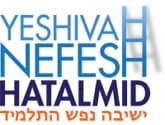1) Blessing our kids:
This week Yaakov gathers all his children to give them Brochos. Rav Hirsch explains the words “Baruch Ata” not as “you are the source of blessings” which many people do and might be grammatically incorrect, but as literally, we are “blessing” Hashem. What does that mean? When we say the word baruch in shmoneh esrei, we bend our knees. The word knees in Hebrew, Birkayim, is related to the word baruch. Rav Hirsch explains when someone bends their knees, they are demonstrating that they are putting themselves and all their power and energy at the disposal of the one before them who is above them. Therefore, when we make a bracha on say, an apple, we are saying that we are “blessing Hashem” i.e. putting all our energies and efforts into demonstrating that Hashem is the creator of all fruit (or whatever the topic of the brocha happens to be). That is why a Brocha is incomplete without an “Amen”, because when one answers Amen to your brocha, you have accomplished your pledge to use your energies to demonstrate Hashems greatness to others regarding fruit by bringing someone else to answer Amen (i.e. that the listener agrees).
How does this apply to blessing children?
When we bless our children, we are not necessarily calling down a spiritual force to assist them, we are declaring that we will use all of our kochos and efforts to ensure their success. In the case of the brocha most parents give their children Friday night, Rav Hirsch explains it is in the areas of Physical wellbeing and parnassah (Yivarechicha…Yishmerecha), Spiritual success (Yaer…Vichuneka), and balancing the 2, physical and spiritual (Yisa…Shalom)
Likewise, the Kohanim “bless” us, they are dedicated to the rest of Klal Yisroels success by being involved in communal activities, being our agents for the Avodah, running the Arei Miklat, learning torah. Perhaps this is also what happens when we get a brocha from a Gadol, who is likewise dedicated to the wellbeing of Klal Yisroel in general.
2) How well do we know our children?:
After Yosef tried to move Yaakovs hands to how he felt they should be arranged while blessing Ephraim and Menashe, Yaakov answers “Yadati”, that he knows that one is older than the other, he is doing this on purpose. The Midrash adds Yaakov was saying “just like I know about Yehuda and Tamar and what happened between Reuvein and Bilha, I can see here things that are hidden, and perhaps hidden from you, Yosef”. Noticeably, he doesn’t say he knew about what happened between Yosef and the brothers. I find this frightening because it demonstrated how a parent can often think they know exactly whats going on with their kids, and they do know much, but can often still not have the whole picture. Think about your own parents, and how much did they really know about what you were up to as a kid? On the other hand, would it have helped Yaakov to know what happened between Yosef and the brothers? It seems that would only have hurt him. Perhaps there are certain things parents shouldn’t know about their kids because they need the space to work it out on their own, and as their parent or teacher we would have a responsibility to get involved if we knew. It seems what was most important was that Yaakov knew the PERSONALITY of each of his children well, and that was what he described in his brochas. Perhaps we dont need (and really cant) know every detail of our kids lives, but we should have a good idea about who they are as a person.
3) Knowing when to talk to a child:
Chazal tell us that some things Yaakov waited until his deathbed to tell his kids, like certain criticisms he held in for decades. It is important to know when our kids need to hear from us, but just as important to know when they need space or when they just wont be mekabel what we have to say. In that case we run the risk of doing more harm by speaking. Whats important though is that in all cases, SOMETHING has to be said, its just a matter of timing it right. Often our criticisms find a voice at the wrong time, and our encouragement doesn’t find an outlet often enough.
Shavua Tov,
Rabbi Ari Deutscher MSW
Menahel

Leave A Comment